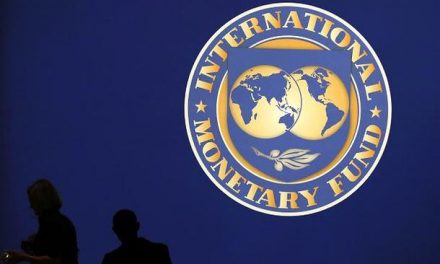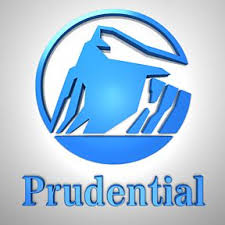By Dimitris Ioannidis*
I selected the Goldman Sachs (‘GS”) case in order to bring to light some of the peripheral factors that have fueled the unprecedented economic crisis in Greece. While it may not seem all that pertinent initially, the GS case is relevant in the analysis of the economic crisis plaguing Greece as Wall Street events trickle down to smaller nations vulnerable to fluctuations and “games” of crafty financiers.
Most of the economists and analysts do not share the popular belief in Greece that the economic crisis is largely the result of foreign forces at play with little causal connection with the bureaucratic government structure that has been promoting policies of vast social entitlements. They also do not share the Greek public opinion that Germany benefited immensely from the sale of military equipment to Greece, the building of many infrastructure projects, including the C4I project for the 2004 Olympic Games in Athens and many other projects that have been allegedly secured by bribes and other illegal paying schemes of Greek public officials. I shall undertake that task in my second newsletter when I analyze the Siemens case.
I also want to make it clear that I do not share these views as the scope of this newsletter is very limited and not intended to delineate such factors. I also question the soundness of the proposition that the economic crisis in Greece is not the result of the meltdown of the social entitlement programs, the vastly unproductive central authority and the public companies that have been operating at significant losses over many years.
I am also not a nationalist who attributes blame to everyone except the irresponsible policies of massive budget deficits that the Greek Government has adopted year after year, financed through foreign debt; nonetheless, there are some events that have unfolded in the financial world that may help us understand how Greece went from a successful host nation of the Olympic Games of 2004 to a country where national assets may allegedly go on the selling block. Finally, I believe that this case, along with the Siemens case, are of some importance in understanding how cases that have been adjudicated in the U.S. Courts may shed light to transactions around the world illustrative of an unregulated free market economy. After all, the spirit of competition in a capitalist world often makes greedy business leaders engage in self-dealing regardless of the social consequences.
II. The Goldman Sachs case
On April 16, 2010, the Securities and Exchange Commission (‘SEC”) filed a civil action against Goldman, Sachs & Co. (‘GS”) and Fabrice Tourre, a Vice President at GS responsible for the structuring and marketing to investors of a synthetic collateralized debt obligation (‘CDO”). The synthetic CDO –referenced as ABACUS 2007–ACI, was tied to the performance of subprime residential mortgage backed securities (“RMBS”) sold to investors in early 2007 when the United States housing market began to show signs of distress. According to the SEC complaint, these types of synthetic CDOs contributed to the financial crisis by magnifying losses associated with the downturn of the U.S. housing market.
In describing the marketing materials for the CDO offered by GS, the SEC concluded that the term sheet, flip book and offering memorandum for the CDO – all represented that the reference portfolio of the RMBS underlying the CDO was selected by ACA Management LLC ("ACA"), a third-party with experience analyzing credit risk in RMBS.
Undisclosed in the marketing materials and unbeknownst to investors, a large hedge fund, Paulson & Co. Inc. ("Paulson"), with economic interests directly adverse to investors in the ABACUS 2007-ACI CDO, played a significant role in the portfolio selection process. After participating in the selection of the reference portfolio, Paulson effectively shorted the RMBS portfolio it helped select by entering into credit default swaps ("CDS") with GS to buy protection on specific layers of the ABACUS 2007-ACI capital structure. Given its financial short interest, Paulson had an economic incentive to choose RMBS that it expected to experience credit events in the near future. GS did not disclose Paulson's adverse economic interests or its role in the portfolio selection process in the term sheet, flip book, offering memorandum or other marketing materials provided to investors. That is, GS arranged a transaction at Paulson's request in which Paulson heavily influenced the selection of the portfolio to suit its economic interests, but failed to disclose to investors, as part of the description of the portfolio selection process contained in the marketing materials used to promote the transaction, Paulson's role in the portfolio selection process or its adverse economic interests.
Tourre was principally responsible for ABACUS 2007-ACI. Tourre devised the transaction, prepared the marketing materials and communicated directly with investors. Tourre knew of Paulson's undisclosed short interest and its role in the collateral selection process. Tourre also misled ACA into believing that Paulson invested approximately $200 million in the equity of ABACUS 2007-ACI (a long position) and, accordingly, that Paulson's interests in the collateral section process were aligned with ACA's when in reality Paulson's interests were sharply conflicting.
The deal closed on April 26, 2007. Paulson paid GS approximately $15 million for structuring and marketing ABACUS 2007-ACl. By October 24, 2007, 83% of the RMBS in the ABACUS 2007-AC1 portfolio had been downgraded and 17% were on negative watch. By January 29, 2008, 99% of the portfolio had been downgraded. As a result, investors in the ABACUS 2007-AC1 CDO lost over $1 billion. Paulson's opposite CDS positions yielded a profit of approximately $1 billion for Paulson.
The SEC alleged that GS and Tourre engaged in misconduct and they also engaged directly or indirectly, in transactions, acts, practices and a course of business that violated Section 17(a) of the Securities Act of 1933, 15 U.S.C. §77q(a) ("the Securities Act"), Section 10(b) of the Securities Exchange Act of 1934, 15 U.S.C. §78j(b)("the Exchange Act") and Exchange Act Rule 10b-5, 17 C.P.R. §240.10b-5. The SEC sought injunctive relief, disgorgement of profits, prejudgment interest, civil penalties and other appropriate and necessary equitable relief from both defendants.
Shortly after the filing of the complaint, the SEC and GS agreed to a final judgment approved by the U.S. Federal Court of New York whereby GS would be: a) permanently restrained and enjoined from violating Section 17(a) of the Securities Act of 1933 in the offer or sale of any security, and b) disgorge $15 million and pay a civil penalty in the amount of $353 million payable to Deutsche Bank, the Royal Bank of Scotland and the SEC. At the same time, the final Judgment imposed strict conditions upon GS in establishing a Product Review committee and adopting a series of compliance mechanisms that would safeguard GS from future mishaps.
III. The correlation with the Greek economic crisis
The interesting facts of the GS case do not directly point to the economic crisis in Greece. However, there are some important attributes of the financial crisis in the U.S. that may have also played a role in the state of affairs in Greece. In an April 27, 2010, NY Times editorial, Bethany McLean makes the argument that the credit crisis in the U.S. was the result of Congress’ inaction to curb the frenzy of the easy loans, the refusal to regulate derivatives and the repeal of the Glass-Steagall Act that separated investment from commercial banking without further adjustments in the regulatory scheme. Richard Parker, an economist who teaches at Harvard’s Kennedy School of Government, wrote an article that appeared in the Boston Globe on May 1, 2010: “Central to Wall Street’s 2008 nose dive were the billions wagered in credit default swaps — the cheap derivatives-based bets with lottery-size payoffs that speculators had placed on US homeowners. Today exactly the same sort of swap bets are what Wall Street has placed against Greece in their Headline Risk Game — and right now we’re looking at what could become a replay of the same disastrous consequences… Here’s the rub for Americans. Had Washington closed off credit default swaps — and similar derivatives-based betting— from this sort of pernicious gaming of global financial systems, this appalling risk of European meltdown could have been avoided. By letting Wall Street work the same magic on Greece that it did on US homeowners, we’ve not only worsened the inevitable pain for millions of ordinary Greeks, but the prospects of our own quick recovery as well.”
The GS case, the theme of the NY Times editorial and the comments of Professor Parker all have more significance in the context of aninteresting event that was reported by the Wall Street Journal in February of 2010 that went generally unnoticed. The WSJ reported that major hedge funds in the U.S. were betting against the European single currency, following a secret dinner in New York City attended by top fund managers that included SAC Capital Advisors, Soros Fund Management and Greenlight Capital. During this “dinner”, members of this group argued that the Euro was likely to fall to parity with the dollar. In an article that appeared in the Financial Times at about the same time, George Soros stated: “The crash of 2008 revealed the flaw in the construction when [EU] members had to rescue their banking systems independently. The Greek debt crisis brought matters to a climax. If member countries cannot take the next steps forward, the euro may fall apart.” Aaron Cowen, an SAC manager was also supporting the bet against the Euro. He believed that any outcome resulting from the Greek debt crisis was negative for the Euro. As obviously expected, a scenario where the Euro is in parity with the dollar could represent significant potential profits for the funds.
Reuters also reported in February of 2010 that hedge funds had increased their bets on Greece’s economic troubles by shorting its bonds or buying default protection. Even hedge funds without direct exposure to Greece have been insulating their portfolios against collateral damage in the currency or credit markets given the concerns that Greece may not be able to service its heavy debt.
Interestingly enough, hedge fund managers made significant profits over the last few years. For example, the top 10 hedge fund managers in the U.S. made over $11.6 billion in profits in 2008 and over $22.5 billion in 2007. AR Magazine reported the following profits:
|
Fund Manager |
2008 |
2007 |
|
James H. Simons, Renaissance Technologies |
$2.5 billion |
$2.8 billion |
|
John Α. Paulson, Paulson & Co. |
$2.0 billion |
$3.7 billion |
|
John D. Arnold, Centaurus Advisors, LLC. |
$1.5 billion |
$480 million |
|
George Soros, Soros Fund Management |
$1.1 billion |
$2.9 billion |
As the economist Richard Parker also wrote in the Boston Globe article: “As 2010 began, the Street’s ‘best and brightest’ saw what suddenly looked like a new source of even easier money, playing what insiders like to call ‘The Headline Risk Game’ on little Greece. Here’s how it works: Greece’s recovery, like our own, still looks pretty shaky — but, for Headline Risk players, that’s an opportunity to bet against their recovery, then pounce when the inevitable bump in the recovery road appears. Their payoff comes as weaker investors rush out of the market for bonds, leaving Greece unable to borrow — and potentially forced to default. (Default, for Headline Risk players, can promise even bigger profits.)”
*Dimitrios Ioannidis is a partner at Roach, Ioannidis & Megaloudis LLC., and counsel to the Consulate General of Greece in Boston, Massachusetts. He has done investigations for large financial institutions abroad and has served as an expert witness in international business transactions and regulatory compliance matters.



















